Wild Tales, by Damián Szifron: summary and analysis of the film
Wild tales is a Spanish-Argentine film written and directed by the filmmaker Damián Szifron that premiered in 2014.
The film revolves around six self-concluding stories, whose nexus between them is always violence. The characters are subjected to different situations of daily life and fate leads them to a crazy and absurd ending. The film is divided into six short films.
The film was made in 2015 with numerous awards such as the Goya and the Ariel for the best Ibero-American film. It also got a nomination in the category of Best Foreign Language Film at the awards. Oscar.

Summary of the movie
Wild tales It is a film made up of six short films. First, Pasternak, tells the story of a model and a music critic who meet on a plane and soon discover that they both know Gabriel Pasternak. Little by little it is revealed that all the passengers have had something to do with Pasternak's past and that he is the commissioner of the plane that eventually crashes.
The second story is titled
The rats and it stars a waitress who discovers that one of her clients is the man who caused the suicide of her father. The cook suggests putting rat killers in his food and, although the waitress refuses, in the end the cook provokes a fatal outcome.The third short film is The strongest, which revolves around the discussion of two drivers. One represents power; another the lack. After the two collide on a lonely road, the story comes to a violent end.
Little bomb, the film's fourth story, tells the life of an engineer outraged by society and its rules. One day he has an altercation with a worker from the towing company after his car was taken away for being badly parked. This event destroys his marriage and ends his job. Finally, the protagonist plans a cruel revenge against the crane company and the quartermaster.
The fifth story is The proposal. It talks about Santiago, the son of a wealthy couple, who runs over a pregnant woman one night and runs away. His parents try to cover up what happened and bribe a worker in his house to plead guilty in exchange for money. In the end, Santiago's father is blackmailed by his own lawyer and by the prosecutor handling the case.
The sixth and last short film is Until death do us part. The story takes place during the wedding of Romina and Ariel. When the banquet begins, the bride learns of her husband's infidelity with a co-worker. From that moment on, the young woman carries out a heinous revenge and unleashes a series of events that turn the party into a battlefield.
Pasternak
Pasternak It is the first short film of the film. It takes place on an airplane, in which Isabel, a model, and Salgado, a classical music critic, coincide. Both begin a conversation that begins by talking about their respective professions until they discover that they have a common past: Gabriel Pasternak. Ex-boyfriend of the model and former student of classical music at the conservatory where Salgado worked, who knocked down her thesis during the presentation.
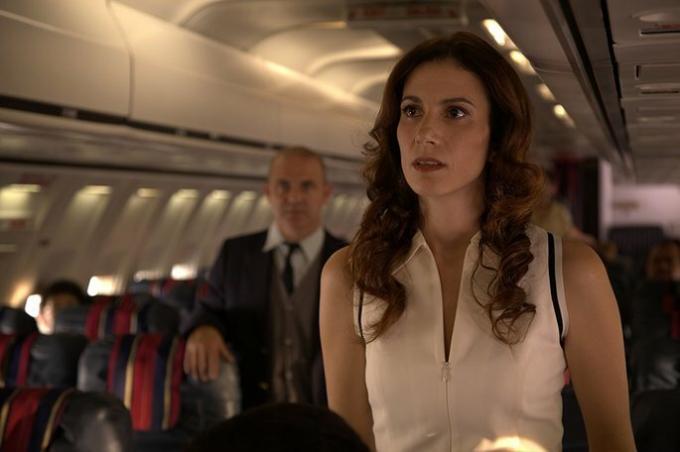
Listening to the conversation, a woman, Professor Leguizamón, cannot help but interrupt to add that she had been a teacher of the aforementioned and that she caused her discontent by communicating that she would repeat course. Little by little, all the people who are there discover that they are related to Gabriel's past and that, in some way, they made him suffer.

Suddenly, a flight attendant announces to the passengers that Pasternak is the commissioner of the plane and that he has been locked in the cockpit for a while without giving an answer. The plane begins to make turbulence and the passengers suspect that everything is part of a plan devised by Gabriel to get revenge on them for the damage they did to him in the past. Meanwhile, her former psychoanalyst, also there, tries to convince her patient to abandon his plan.

Finally Pasternak, succumbed to the humiliation and betrayal of the passengers of the flight, does not abort his mission and the story ends with the plane about to crash in the garden of the house of a couple of elderly.
Analysis of Pasternak: between rancor and revenge
Gabriel Pasternak's rancor is what moves this tale to an abrupt and "wild" end. As spectators we cannot put a face to the character of Pasternak, around whom the whole story revolves. However, the use of the "absent character" technique is interesting: although it does not appear on the screen, we know it thanks to the other characters.
This story represents resentment and the inability to forgive. He does it through Gabriel, a man who has suffered in the past because of an ex who cheated on him, a judge who prevented him from developing his career as a critic, a teacher who made him repeat a year, a former classmate who made bullying and a psychologist who could not understand.
Through all these situations, described by the passengers of the flight and which may be familiar to the viewer, we meet Pasternak. In a tone that moves between the tragic and the comic, we discover an ending that no one could expect: the revenge of the protagonist who crashes the plane in the garden of his parents.
The rats
The rats it is the second story that appears in the film. The story takes place in a restaurant, located in the middle of the road, in which a waitress discovers that one of her clients, a politician named Cuenca, is the cause of the death of his father and, therefore, responsible for his subsequent tragedies relatives.
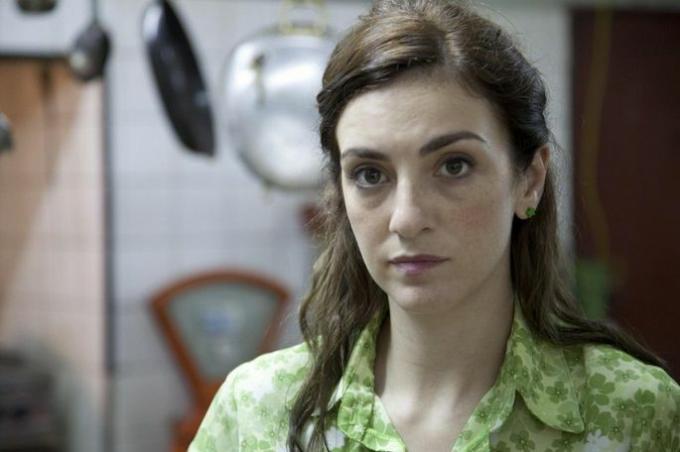
Soon the girl communicates what happened to the cook, an ex-convict, and she proposes to poison the man by adding rat killers to her food.

Without taking the young woman's opinion into account, the cook decides to put poison on Cuenca's food.

However, the product has no effect on the man and the waitress, repentant, tries to remove the plate from him without success.
Then Alex, the politician's son, appears, who tastes the food and begins to decompose. The waitress insists on doing something to prevent their deaths, but the cook insists on letting them die.
The situation continues with a struggle between the girl and the politician with the intention of avoiding her intoxication. But the man assaults her and insults her.

Finally, the cook, who is watching the scene, appears from behind her and stabs Cuenca in the back with a kitchen knife. The girl ends up lying on the floor bathed in the politician's blood and the cook is arrested by the police.
Analysis of The rats: indifference and revenge
Resentment, indifference and abuse of power are the main ingredients of this story. The waitress shows annoyance when she knows Cuenca's presence, which represents despotism, and she shows her desire to avenge the death of her father.
However, the young woman's kind personality and her conscience prevent her from making a decision to carry out the crime. It is then that the indifference of the character of the cook is represented, a woman who has served a sentence and who is cold when it comes to avenging an unjust situation. In this case, this character symbolizes the "irrational animal" that we all carry within us in abusive circumstances.
Ultimately, this story aims to reveal the most prehistoric side of the human being, by show that, no matter how rational we may be, in the face of revenge we do not differ much from animals.
The strongest
The strongest is the third story that the film presents and takes place on a highway. Two characters, Diego and Mario, start a dispute that leads to their struggle for survival after the war has been declared.
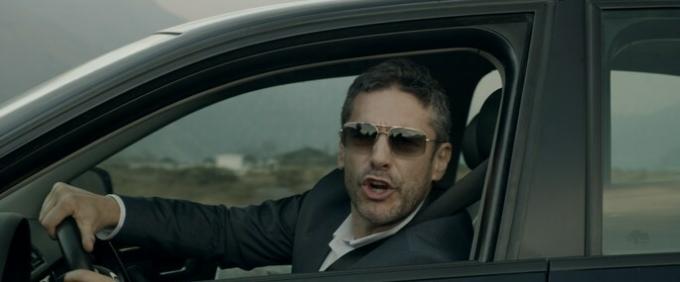
Diego, a wealthy man and a passionate motorist, enjoys driving on a lonely road with an Audi car. Unexpectedly, he comes across an old and worn car, Mario's, which is slower than him and prevents overtaking. Finally Diego manages to do the maneuver and insults the other driver calling him a "resentful black man."

Shortly after, Diego notices the puncture of one of the wheels of his car and has to stop in the middle of the route. While he waits for the tow truck, he meets Mario, a lower class man, whom he had insulted earlier, who decides to park his car in front of the Audi.
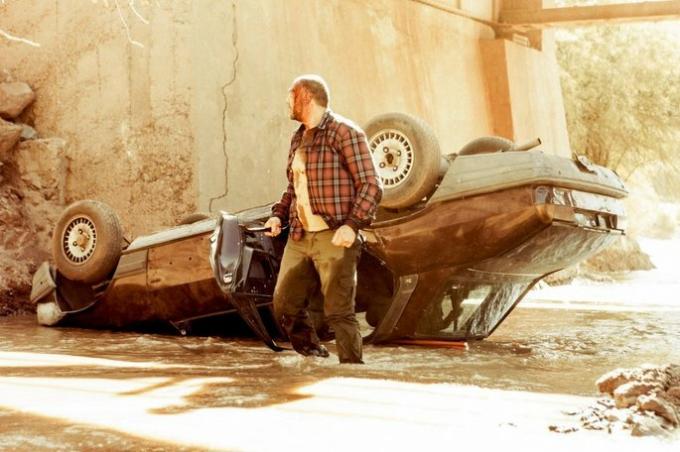
Diego decides to get into his car to protect himself while Mario plans a cruel revenge and smashes the high-end car to pieces. The driver of the Audi decides to start the car and throw Mario down a nearby river. He then tries to change the tire in order to escape, but Mario manages to get out of the river.
From that moment on, the story becomes a battle between the two drivers, summed up in blows, shouts and insults.
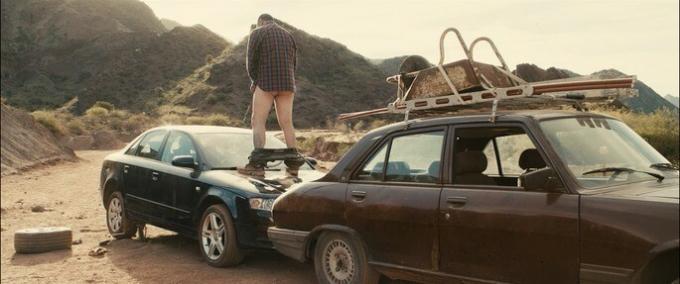
Finally, Mario tries to set Diego's car on fire with the driver inside but both end up burned inside the car.
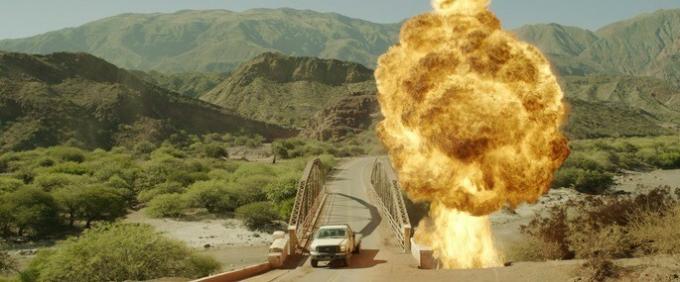
Analysis of The strongest: the class struggle
Diego and Mario's characters represent a conflict driven by class struggle. On the one hand, Diego represents pride when he comes across a car "worse" than his on the road, and his instinct for superiority forces him to overtake it. On the other hand, Mario represents the lower class and somehow tries not to get trampled on.
Diego's haughty attitude is diminished by the puncture of a tire on his car, this shows that, despite driving a high-end car, he is also exposed to damage like any other.
Regardless of the social class to which the protagonists belong, both present their most "wild" side in extreme situations. Both share anger and loss of control, no matter the education received or the social level they have.
Little bomb
The fourth story of the film, Bombita, takes place around the character of Simon. An experienced explosives engineer tired of social injustice who finds himself in trouble with the administration from the moment the tow truck removes the car from him, supposedly badly parked.
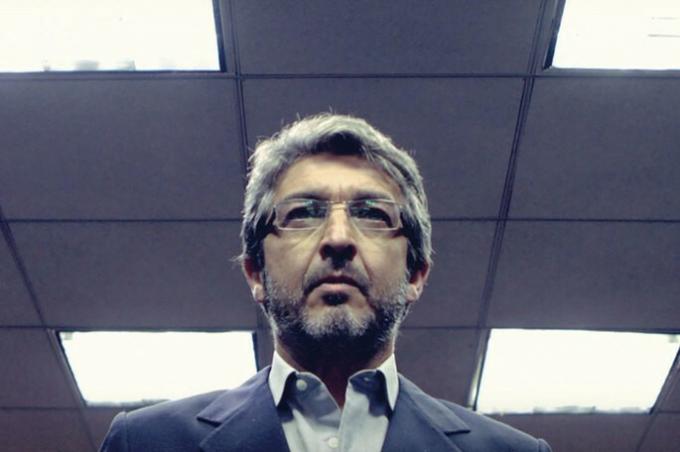
Angered by the situation, he decides to go to the claims office but does not get a good deal from the employee, who forces him to pay the fine.
When he retrieves his car and goes to his house to make it to his daughter's birthday, he gets stuck in a traffic jam. Finally, he manages to get home and his wife, angered by her indifferent attitude towards her family situations, proposes to put an end to her marriage.
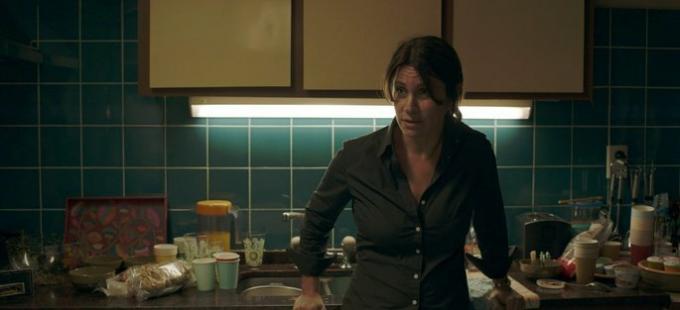
The next day, the engineer returns to the traffic office with the intention that the municipality apologize for what happened and compensate him. Unsuccessfully, she argues with the employee and hits the glass that separates them until the security agents come.
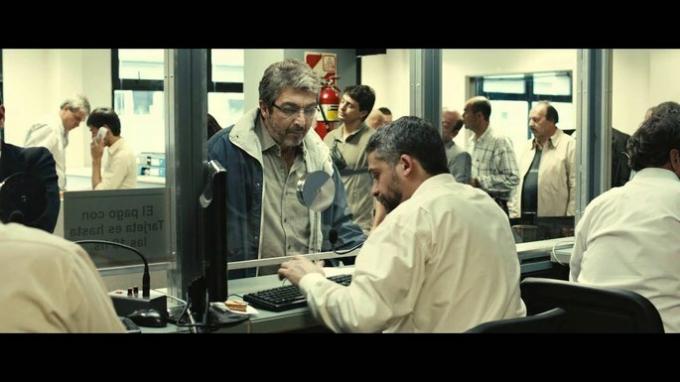
The event appears in numerous media and he is fired from his job. Meanwhile, his wife initiates the divorce proceedings and makes her lawyer withdraw joint custody of her daughter, by appealing that she is violent and unemployed.
After this situation, Simón looks for work in an engineering company, although without results. When he leaves the office, he discovers that his car is missing and that the tow truck has taken it away again because it is badly parked. Which is a new offense and unleashes the protagonist's anger.
This fact produces the revenge of Simón, who puts explosives in his car and deliberately parks it in a forbidden place. He then watches from the window of a cafeteria how his car explodes in the depot.
Finally, although the protagonist is jailed, the event is on the front page of all the country's newspapers. From that moment on, he became a hero and called himself "Bombita", among all those who fight against the bureaucracy and the unjust rules of the administration.
Analysis of Little bomb: the fight against injustice
In an urban context, this short film starring Diego makes the viewer empathize from the first minute. Often, we are subject to the rules that govern the administrations and, on some occasions, we are victims of the bureaucratic system.
This character symbolizes this struggle for injustice and powerlessness in the face of a worn-out system that envelops him in a personal and professional drama. The story is a hymn to the fight against the prevailing social system in Argentine society.
The proposal
The penultimate story of the film presents Santiago, a young man from a wealthy family who suffers a mishap with the car of his parents and runs over a pregnant woman.
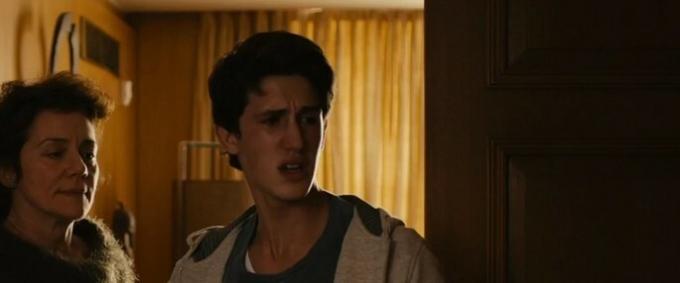
Desperate for what happened, Santiago wakes up his parents, Helena and Mauricio, to tell them through tears what happened.
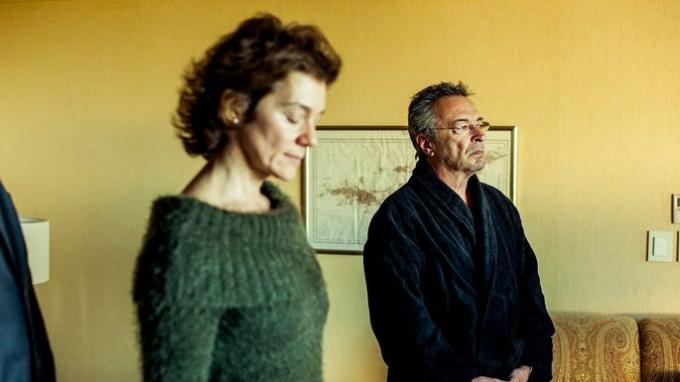
Mauricio and Helena try to stop their son's anguish and call the family's lawyer, who treats them immediately.
The lawyer reveals to his clients that they will condemn his son. Meanwhile, the media report on television what happened and echo the critical condition of the victim.
The family lawyer proposes that someone else take responsibility for the accident to prevent Santiago from going to jail. Then, Mauricio calls José, the gardener of the house, to assume the crime as his own in exchange for money.
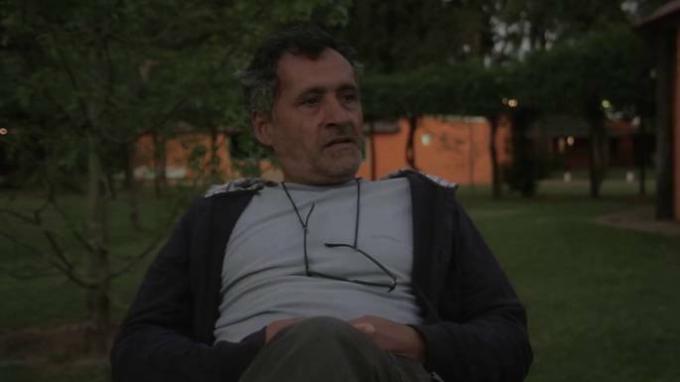
José accepts the plan and tries to deceive the prosecutor on duty; however, he discovers that the house employee is not the culprit. Later the lawyer proposes to Mauricio to bribe the prosecutor so that he does not confess what happened.
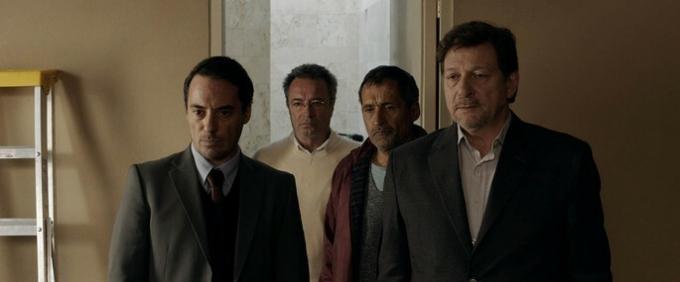
Finally, Mauricio ends up being the victim of blackmail by the lawyer and the prosecutor, who try to get more money from him in exchange for his silence. On the other hand, the gardener is arrested by the police and leads a fatal outcome when the victim's husband kills him while he is transferred to prison.
Analysis of The proposal: Money is not everything
In this story, high society reappears as a backdrop. Mauricio represents power and believes that with money he will be able to correct the crime that his son has committed. However, this account shows that money is not everything at the moment when the plan of the protagonist turns against him when his lawyer and the prosecutor blackmail him in exchange for more money.
That is why this story tries to reflect that wealth, an element that would bring peace in the family, plunges Mario into a plot of corruption and bribery.
Until death do us part
The sixth and last story takes place at a banquet, that of Romina and Ariel's wedding.
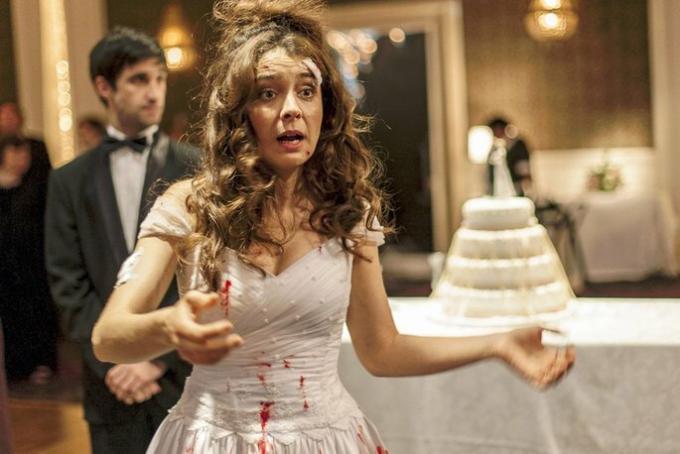
In the wedding hall, the guests await the arrival of the bride and groom while watching a video of them. Next, Romina and Ariel, newly married, burst into the room and begin to celebrate the bond with their friends between dances and laughter.
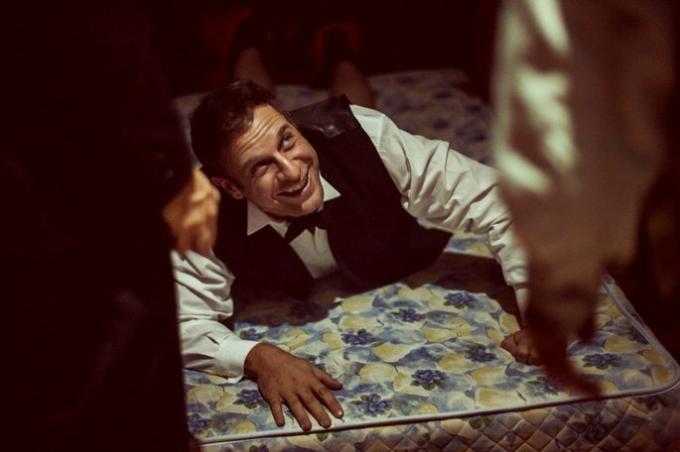
In the middle of the night, Romina sees her husband speak affectionately with a coworker. Later, during the waltz, the bride interrogates her husband and he confesses her infidelity.
Then Romina cries and leaves the wedding hall desperate. In the vicinity of the room, the young woman meets one of the cooks and, possessed by rage, she decides to have sex with the employee. Ariel, who had run after her, catches them in the middle of the act.
After this fact, Romina threatens her husband, swears that she will make life impossible for him and warns him that she will not give him a divorce until death do them part. Then he leaves the place and returns to the party to attend to the guests.
Once in the living room, the bride takes Ariel's lover out to dance and ends up throwing her against a window. Later, Ariel cries disconsolate because of what happened and his mother threatens and assaults Romina.
In the end, in the middle of the disaster, the couple begin to dance on the dance floor and they reconcile before the eyes of the guests, distressed by what happened.
Analysis of Until death do us part: betrayal and revenge
The sixth short film puts the icing on the cake as it is one of the wildest stories that the viewer could imagine.
In a black comedy tone and in a context in which no one would expect what happened, the betrayal by Ariel and revenge by Romina are represented.
A wedding, a daily situation, that makes us consider as spectators how we would act in that circumstance.
This story aims to end the film by recording and recapitulating the idea that remains implicit throughout the entire film: violence as the common motor of all beings irrational.
Analysis and interpretation of the film
Wild tales It is a film that we can analyze at different levels: structure, context and the characters or fusion of genres. We discuss each of these aspects below.
Structure
Far from having a conventional structure, the film is made up of six stories, each with a clear narrative structure: approach, middle and end. However, all of them are conditioned by a concept that moves all its protagonists: revenge.
Context and characters: everyday life taken to the limit
The situations that are presented in the film as well as the context in which they take place: the interior of an airplane, a road bar or the routine of a city, could be perfectly extrapolated to the daily life of any viewer.
The characters, representing different social classes, share anger and stress. In their behavior they awaken the animal nature of the human being, regardless of the social category, when facing unfair or abusive situations.
Faced with these circumstances, the protagonists of the six stories lose control and are carried away by their desire for revenge.
Genre fusion
One of the most prominent details of the film is the combination of different film genres. The presence of a linear structure that includes different stories allows the introduction of different genres. That is why, throughout the film, appear: drama, black comedy, tragicomedy and suspense.
Conclusion: catharsis and fun
Undoubtedly, this Spanish-Argentine film invites reflection through fresh stories that lead its protagonists to a personal catharsis.
In terms of fun, the film entangles and traps the viewer from beginning to end as if, for a moment, it was the main character in each story. Definitely, Wild tales It is a light and entertaining film that leaves no one indifferent.
Trailer
You may also like:
- Film City of God by Fernando Meirelles
- Christopher Nolan Movie Memento



